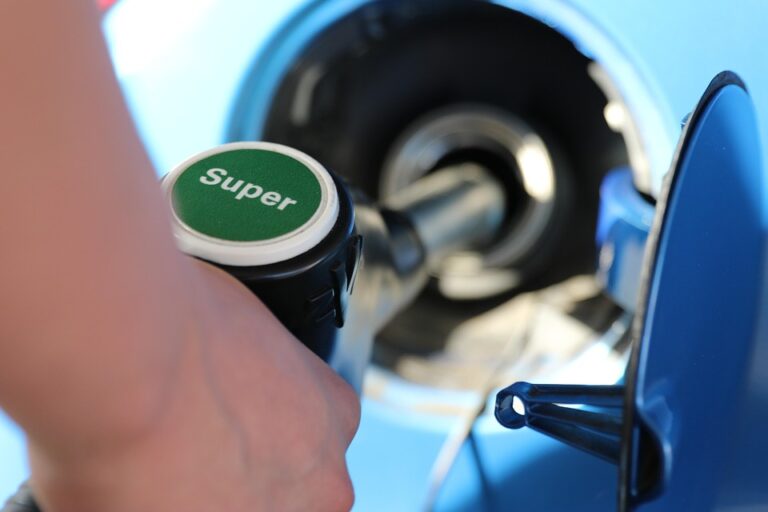The Ultimate Checklist for Fuel Efficiency: Tips to Reduce Your Carbon Footprint
In today’s world, where environmental concerns are more pressing than ever, one crucial aspect we can all focus on is fuel efficiency. By optimizing how we drive and maintain our vehicles, we not only save money but also play a significant role in reducing our carbon footprint. This ultimate checklist provides a wealth of fuel efficiency tips designed to make a difference.
Understanding Fuel Efficiency and Its Importance
Fuel efficiency refers to how effectively a vehicle converts fuel into distance traveled. Vehicles with better fuel efficiency use less fuel for the same distance, which leads to lower emissions. In a time when climate change impacts are felt worldwide, selecting a fuel-efficient vehicle, and adopting fuel-saving driving habits is not just a personal choice but a collective responsibility.
Why Focus on Reducing Your Carbon Footprint?
- Environmental Impact: Transportation is a leading contributor to greenhouse gas emissions. Improving fuel efficiency can significantly decrease these harmful emissions.
- Cost Savings: Higher fuel efficiency means less money spent on fuel. As gas prices fluctuate, this savings can accumulate over time.
- Energy Independence: Reducing fuel consumption assists in lessening dependence on imported fuel sources, paving the way for a more sustainable energy future.
Fuel Efficiency Tips for Everyday Driving
Adopting a few simple driving habits can greatly enhance your vehicle’s fuel efficiency. Here’s a detailed checklist to guide you.
1. Monitor Tire Pressure Regularly
- Proper Inflation: Ensure your tires are inflated to the manufacturer-recommended pressure. Under-inflated tires increase rolling resistance, reducing fuel efficiency.
- Check Monthly: Make it a habit to check your tire pressure at least once a month and before long trips.
2. Optimize Your Driving Habits
- Smooth Acceleration and Braking: Avoid sudden starts and stops. Accelerate gently and anticipate traffic signals to minimize unnecessary braking.
- Maintain Steady Speeds: Use cruise control on highways to sustain a consistent speed, which optimizes fuel consumption.
Key Driving Practices:
- Keep Speed Below 65 mph: Fuel efficiency decreases significantly as speed increases. Aim to drive at moderate speeds.
- Use Air Conditioning Wisely: Avoid using the A/C when it’s not necessary. Open windows at lower speeds, and use A/C sparingly on the highway.
3. Reduce Excess Weight
- Clear Out the Trunk: Remove any unnecessary items that add weight, which can decrease fuel efficiency.
- Roof Racks and Carriers: When not in use, remove roof racks or carriers as they create aerodynamic drag, impacting fuel consumption.
4. Plan Your Trips Wisely
- Combine Errands: Try to run multiple errands in one trip to avoid multiple short trips, which consume more fuel.
- Use Navigation Apps: Utilize apps like Google Maps or Waze to find the quickest and most fuel-efficient routes.
Vehicle Maintenance for Enhanced Fuel Efficiency
Regular vehicle maintenance is key to keeping your car running efficiently and reducing your carbon footprint.
1. Keep the Engine Tuned
- Regular Servicing: Schedule routine maintenance checks including oil changes and tune-ups. A well-maintained engine runs more efficiently.
- Change Air Filters: Replace clogged air filters to improve airflow and engine performance, crucial for fuel efficiency.
2. Use the Right Motor Oil
- Recommended Oil: Use the manufacturer’s recommended oil viscosity. Using the right oil can improve fuel efficiency.
- Synthetic Options: Consider using synthetic oil, which tends to perform better under high temperatures.
3. Check the Fuel System
- Fuel Injectors: Ensure fuel injectors are clean for optimal performance. Clogged injectors can significantly hamper efficiency.
- Use Quality Fuel: Fill up at reputable gas stations. Higher-quality fuels can enhance performance.
Choosing the Right Vehicle
If you’re in the market for a new vehicle, consider these fuel efficiency tips when making your selection:
- Look for Fuel Economy Ratings: Research not just MPG ratings but also vehicle types that offer better efficiency, such as hybrids or electric cars.
- Consider Lightweight Vehicles: Lighter vehicles typically use less fuel. Look for models designed with fuel efficiency in mind.
Conclusion: Every Little Bit Counts
Incorporating these fuel efficiency tips into your driving habits and vehicle maintenance routine can significantly reduce your carbon footprint. Not only does it contribute to environmental preservation, but it also translates to cost savings at the gas pump.
Adopt these practices, and you’ll not only feel good about your reduced impact on the planet but you might also notice some extra cash in your pocket. Start your journey towards efficient driving today—every little bit counts!
For more tips on maintaining your vehicle and contributing to a sustainable environment, visit us at buzzo.live and stay informed!


